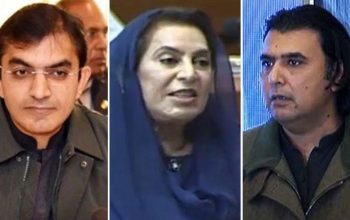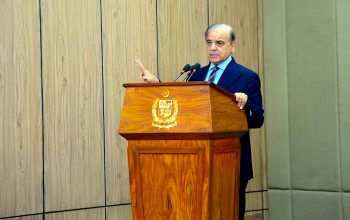FAISALABAD: Forty percent of SMEs have been closed due to unprecedented inflation, high energy cost, delay in payment of refund claims, political uncertainty and inconsistent policies, said Dr Sajjad Arshad Acting President Faisalabad Chamber of Commerce & Industry (FCCI).
He was addressing the participants of 34th Senior Management Course (SMC) of the National Institute of Management (NIM) Peshawar who visited FCCI here today. He stressed the need for collaborative efforts by civil and military bureaucracy, politicians, business community and judicially to rehabilitate the economy on a strong footing and on a sustained basis. He said that chambers remained in touch with the government to resolve the issues faced by the business community. “FCCI played a key role in budget formulation”, he said and added that it was for the first time that President FCCI was picked as chairman of the tax anomaly committee instead of FPCCI.
He said that concerned ministries are always ready to discuss issues but they have their own limitations due to the direct intervention of the IMF. He said that exports have declined from $18-19bn to $14bn. “This slide will continue if the government fails to take immediate prudent measures”, he said and added that energy cost has further fuelled the inflation. He said that electricity in Bangladesh is available at 8, in Vietnam its cost is 6 while in Pakistan it is provided at 14cent per unit. He said that gas prices have also witnessed hefty increase and, in this situation, Pakistan could not compete with their regional competitors. Quoting his visit to China, he said that this country was producing 50% electricity from solar & wind and remaining 50% from hydel. He said that the government should provide subsidized loans at 6% to the SME sector to generate solar energy. He further said that we have unlimited resources of coal in Thar but we failed to fully exploit its potential.
About the negative impact of political instability on the economy, he said that exports, FDI and remittances are also decreasing with the stalemate of technology transfer. He said that our diplomatic force should work proactively to provide a conducive climate to the exporters to overcome these issues. He said that depreciation of PKR against dollar, poor law & order situation and dysfunctional judicial system is a major hurdle in attracting FDI. He said that we must introduce long term policies without any interruption to stabilize the economy. About GSP plus, he said that we failed to fully exploit its potential and our exporters should start exporting non-traditional items. “This facility will continue up to 2027 and we must get maximum benefit from it”, he said and added that we are exporting rice of $2.4bn while we have potential to increase it up to $10bn.
Dr Sajjad Arshad said that Pakistan is predominantly an agrarian economy and we must introduce value added agri and dairy products from our basic field produce. He said that the Punjab government has established the first ever Business Facilitation Centre in Lahore while another one is nearing completion in Faisalabad. “However, I could not identify its benefits for the business community as it would be too early to comment on it”, he added.
The Acting President said that cotton production declined in Punjab and the Chief Minister had assured to fix the minimum cotton price at Rs. 8,000 but it is being sold at Rs. 6,000 while 17% GST has also been added on cotton seed. He further said that maize production increased three-fold but its rates have declined causing major loss to the farming community.
Copyright Business Recorder, 2024
Read the full story at the Business Recorder - Latest News website.



